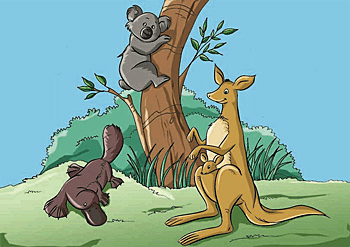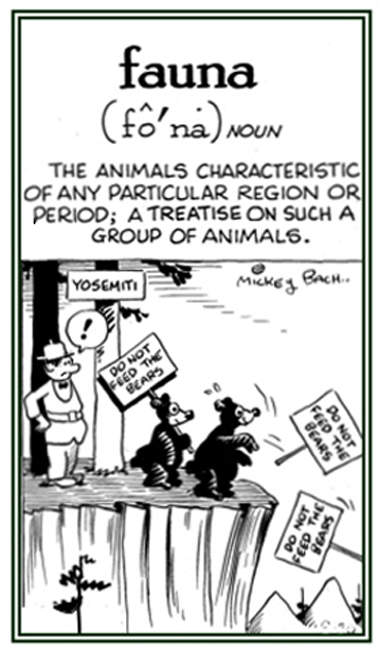faun-, fauni-, fauna-, -fauna
(Latin: animal; a collective name for the animals of a certain region or time)
The cryptofauna constitute a category of animals which contribute an important reef ecosystems because these organisms present a high level of diversity, in terms of both different age levels and occupying spaces.
The various cryptofaunas are considered to be important as food for fish and other creatures on coral reefs.
2. To drive off or deplete animal life in an area: A process of defaunating local or global extinctions of large (vertebrate) animals as a result of human processes; such as by, hunting or the depletion of forests when people over populate such areas.
Some areas have been defaunated by excessive deforestation by humans which threatens global biodiversity in some areas of the world.
When some areas are overly defaunated, there are impacts resulting from the loss of key pollinators and seed dispersers by the absence of animals that indirectly affects the ecology of the forests.
Defaunation, or animal impoverishment, is usually missing from the analyses of tropical forest conservation that results from human activities which include deforestation and the loss of the fauna, particularly the medium and large animals that are the most vulnerable, because of hunting or habitat reduction or fragmentation of forests.
2. The total animal life inhabiting a sediment surface or water surface; any encrusting organisms.
The name of Fauna came to mean "animals" because the many-breasted Diana was supposed to give birth to all animals and to nourish them with her numerous breasts, as shown on her famous statue at Ephesus.
Another name for Fauna was Bona Dea, the "Good Goddess".
2. A catalog or list describing the animals of a particular place or time: In order to give his report on the wildlife of his area, Jim’s teacher gave him a fauna to read.



